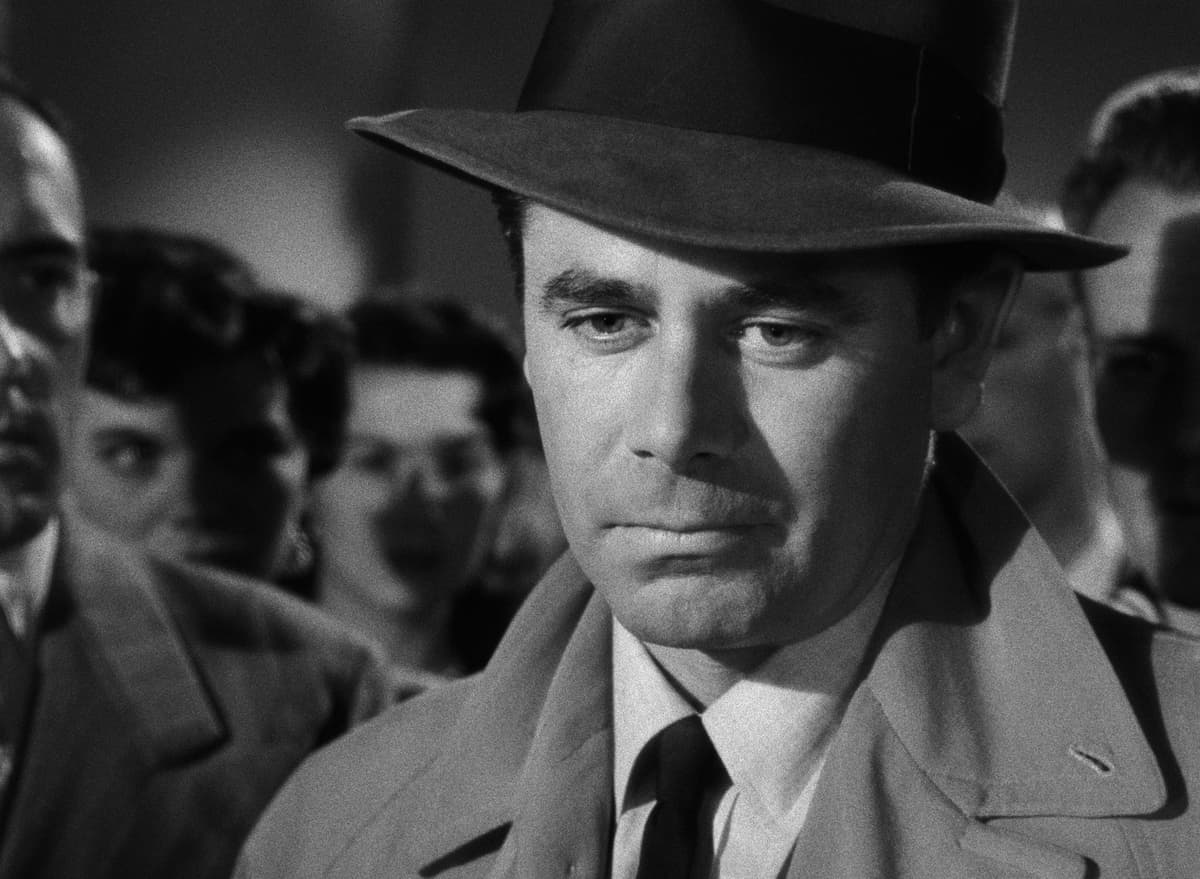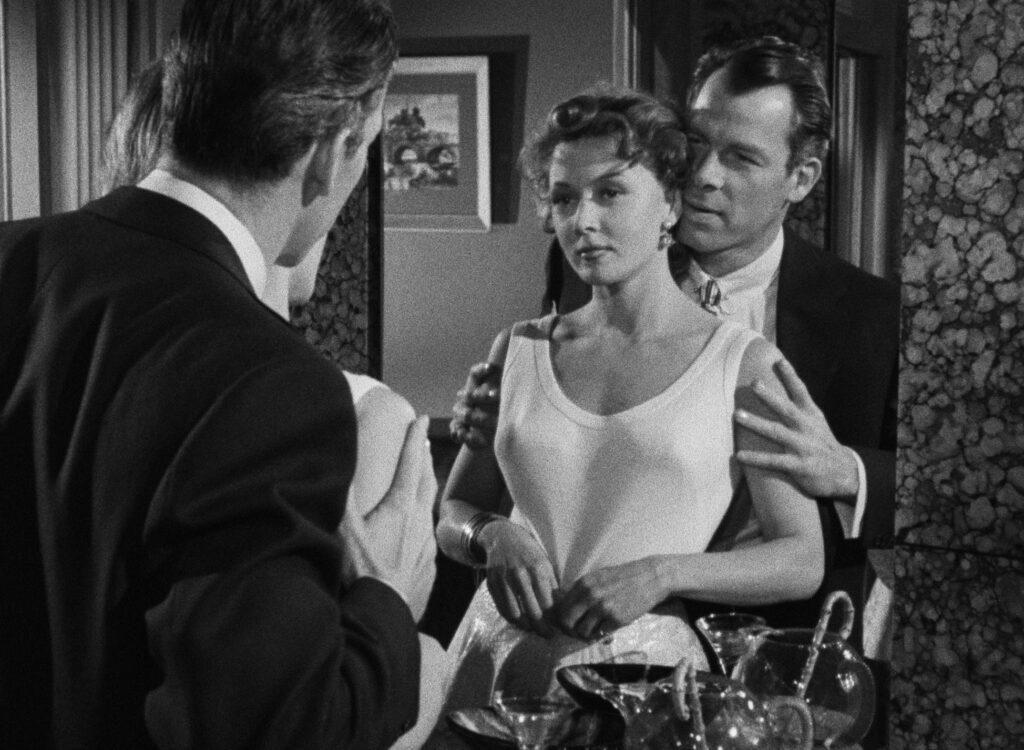Blu-Ray Release of ‘The Big Heat’ Is Fitting for an Odd Movie That Gets Odder Upon Repeated Viewings
Director Fritz Lang’s grip on the proceedings is steely and concise, allowing for currents of melancholy and humor to emerge from the eccentricities of the supporting characters.

A pioneering American newspaperman, Horace Greeley, once wrote, “Fame is a vapour … the only earthly certainty is oblivion.” This cheery thought came to mind upon watching Fritz Lang’s “The Big Heat” (1953), a film recently released by the Criterion Collection as a 4K Blu-ray. The passing tides of popular taste invariably give short shrift to celebrity, and this is no less the case for a matinee idol like Glenn Ford than it is for a top-of-the-pile character actor like Lee Marvin — each of whom play important roles in Lang’s starkly configured noir.
Has time and distance been any kinder to the movie’s femme fatale, Gloria Grahame (1923-81)? Unlike Ford or Marvin, Grahame had a movie made about her life — or at least her final years: Paul McGuigan’s “Film Stars Don’t Die in Liverpool” (2017).
Based upon a book by photographer and writer Peter Turner, the picture details Grahame’s post-Hollywood career as a down-on-her-luck theatrical actress in the United Kingdom. Annette Benning was cast in the lead role: She was already familiar with Grahame’s cinematic profile, having employed it as inspiration for her role as a con artist in Stephen Frears’s “The Grifters” (1991).
Grahame’s character, Debby Marsh, appears only sporadically during the first hour of “The Big Heat,” but she makes an impression: Not only is Debby blonde and a bombshell, but her behavior is extravagant bordering on self-destructive. She’s the kept woman of Vince Stone (Marvin), the right-hand thug of local mob boss Mike Lagana (Alexander Scourby). Graham plays it to the hilt, even a bit over the hilt, but she’s given choice lines by screenwriter Sidney Boehm, the best known of which is: “I’ve been rich and I’ve been poor. Believe me, rich is better.”

At the center of “The Big Heat” is Dave Bannion (Ford), a police officer in a middle-American township, Kenport. Bannion has a well-kempt, if modestly scaled, ranch house, an adoring wife, Katie (Jocelyn Brando, the sister of Marlon), and a precocious daughter (Linda Bennett). Dave and Katie have steak for dinner, take a tipple or two, and enjoy a chummy sexual relationship. Contemporary scolds might take offense at how casually Dave biffs Katie’s backside, but Ford and Brando do a sweet job at conveying the casual intimacies that can accrue from a longstanding relationship.
What is decidedly less bucolic are the goings-on in the not-so-wholesome burg of Kenport. The opening of “The Big Heat” is as dramatic as it is deadpan: We watch as a local police officer, seated behind a desk at home, seals a lengthy letter within an envelope and then methodically puts a pistol to his temple. Upon hearing the gun’s retort, the officer’s wife (Jeanette Nolan) enters the resultant scene, reads the letter, takes stock of the situation, and acts with a stoicism out-of-keeping with the events at hand. She calls the police, but only after notifying Lagana. First things first.
What follows is an odd movie that gets odder upon repeated viewings — an amorality tale that has the tincture of parody. The swelling tones of Henry Vars’s soundtrack, particularly when it accompanies scenes of the Bannions’ homelife, are beyond smarmy. The stage sets are peculiarly anodyne, so much so that when we see Ford walk through the grounds of an actual automobile salvage yard, we’re grateful for the natural light and sweep of space. Was Lang operating under budgetary constraints or making a point about the fundamental artificiality of cinema? Whatever the case, claustrophobia abides.
Lang’s grip on the proceedings is steely and concise, allowing for currents of melancholy and humor to emerge from the eccentricities of the supporting characters. Attention should be paid, especially, to Dorothy Green as a world-weary B-girl and Peter Whitney as a barkeep who is as slovenly as he is sharp-witted: His brief tete-a-tete with Bannion is among the film’s most tensile pleasures.
Ford handles his duties with precision, being earnest or pathological as the occasion calls for, but his performance is nowhere near as decisive as Marvin’s abusive bully or Grahame’s tragic opportunist. Between those two poles is a hard-charging film that is not as great as its reputation, yet remains a pillar of the genre all the same.

